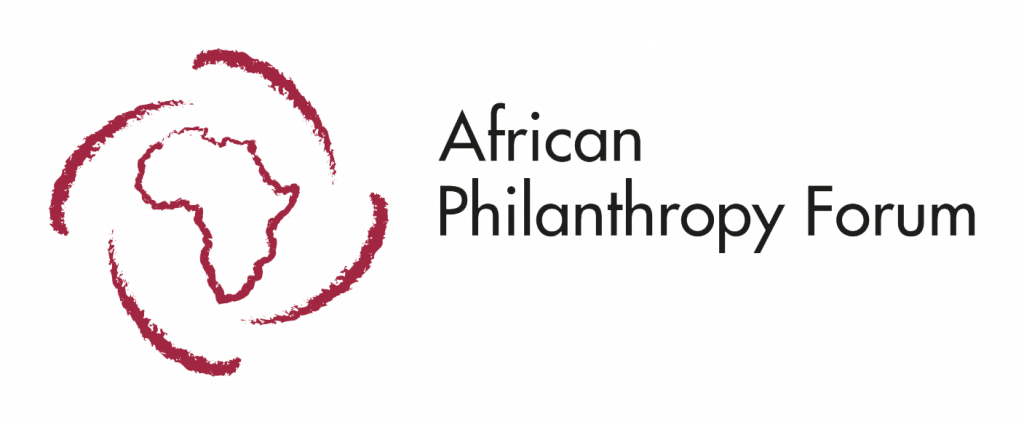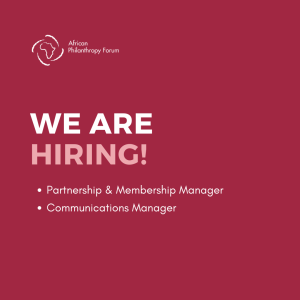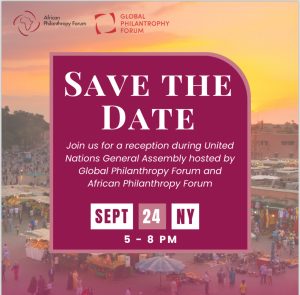
General TY Danjuma had a long and distinguished career in the Nigerian Army where he rose to the rank of Lieutenant General and served as Chief of Army Staff. Following his retirement from the army, General Danjuma embarked on a business career and founded many Nigerian companies including the NAL-Comet Group, one of the most successful indigenous shipping agencies and terminal operators in Nigeria and South Atlantic Petroleum Limited, an oil exploration and production company. General Danjuma served as Nigeria’s Minister of Defense from 1999 – 2003. In 2009, he set up the TY Danjuma Foundation, a private, grant making philanthropic organization dedicated to improving the quality of life of Nigerians.
How did your philanthropy begin?
I have always wanted to give back to my country, Nigeria, which created opportunities for me. I had a successful career in the army and in business for which I am grateful. To show my gratitude to my country and to the Almighty God, I give. Previously, I had been giving to various causes but mostly in an informal way. There was no documentation or monitoring of what and how I was giving. A lot of money was being spent but it was not clear if there was value in return. It became imperative to set up a structure around my philanthropic activities to ensure a long-lasting impact.
In 2009, with advice from others, I decided to establish a private, grant-making foundation, the TY Danjuma Foundation, with a $100 million endowment. The foundation has a board of trustees, experienced staff and an office infrastructure. We have a head office in Abuja, and two other offices in Taraba and Edo states,, one of which is my home state, Taraba. Taraba is historically one of Nigeria’s most impoverished states. As we set up the TY Danjuma Foundation, I narrowed the scope of my philanthropy to focus on education and health care. Primarily we provide grants to non-governmental organizations (NGOs) across Nigeria working in impoverished and underserved communities. The money we give is vital to these organizations. They are doing important work, and the money we donate enables them to use their energy and their time doing more of this live-touching work.
How did you select the focus of the TY Danjuma Foundation?
We listened. In the beginning, we held a consultative meeting with key stakeholders. We spoke to community groups and NGOs in Nigeria. They confirmed that health care and education are the most pressing needs of Nigerians. We used these meetings to learn how to prioritize our funding.
Has your approach at the TY Danjuma Foundation changed over time?
Our approach has changed as we learn from our successes and mistakes. We’ve put in place a strategy to deepen our work with other partners such as government. We think about how to address the root causes of some of the problems we see, rather than simply supporting one organization. We’re trying to bring about systemic change through our giving. In 2014, we reached a significant milestone. Our total amount in grants reached two billion Naira.
We have also begun to leverage additional resources from other development partners, government and other foundations to support the work of our grantees. But we do more than just giving money. People need more than donations, what they need is engagement. They need people who give time, share skills, train and nurture leadership. This can have far more impact and is an important part of philanthropy.
Can you tell us more about the core values of your Foundation and how you apply these to your work?
Accountability is crucial. This is one of our core values at the Foundation. It is important that we try to implement this discipline and way of thinking in our own work and the organizations we work with. The more we encourage philanthropic organizations in Nigeria to behave more professionally, the more we can start to identify and create value. We strongly encourage the organizations we work with to document what they spend, the results they achieve, and when they are not successful. This helps them to become more efficient at delivering services and attract more resources. Without proper governance and structures in place, we risk destroying a lot of the value of the Foundation, and the work we support. We have the resources in Nigeria to deal with the social and economic challenges we face, but the challenge is now to put a framework in place so that we can ensure these resources are used effectively.
If you were to give advice to someone that was at the beginning of his or her philanthropy journey, what advice would that be?
You need to think strategically about how you give money. I’ve really had to learn on the job and made several mistakes. Over the years, I have sought expert advice about how to give in a structured and sustainable way. You need to ask how your money is being spent, and whether it is solving the problems you want to solve. Giving money and knowing there’s a management structure around it and that results are tracked over time can ensure that the money is properly used and the causes and projects you support grow and develop. I think the best way of getting this message across is to lead by example, and to show people how this can be done. This is why it’s important that the TY Danjuma Foundation be an example of a philanthropic organization that has made a positive social impact – not just in Nigeria but in Africa. We need to develop our local role models. The reason I am so keen on structure, accountability and sustainability is that they can help provide these examples.
What has been your biggest lesson learned?
To me, philanthropy is more than just giving money. No one, absolutely no one is too poor to give. If you don’t have money, you have time.
—
This article is an excerpt from the first edition of the Toolkit for African Philanthropists published by the African Philanthropy Forum. To learn more about this toolkit, please visit here africanpf.org/publication


